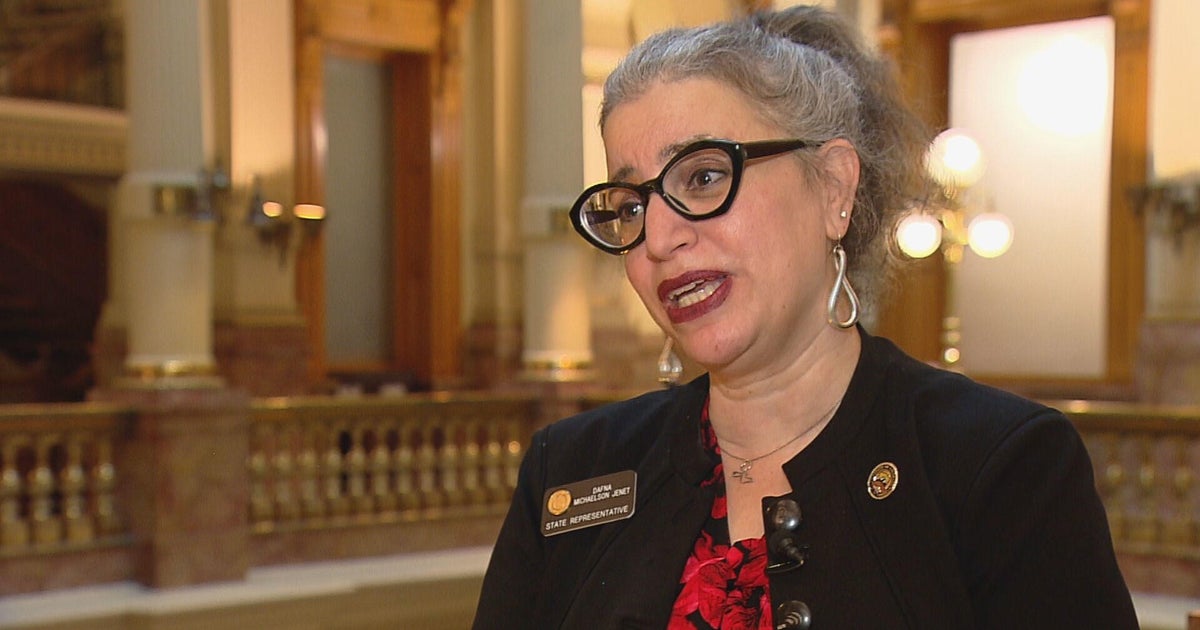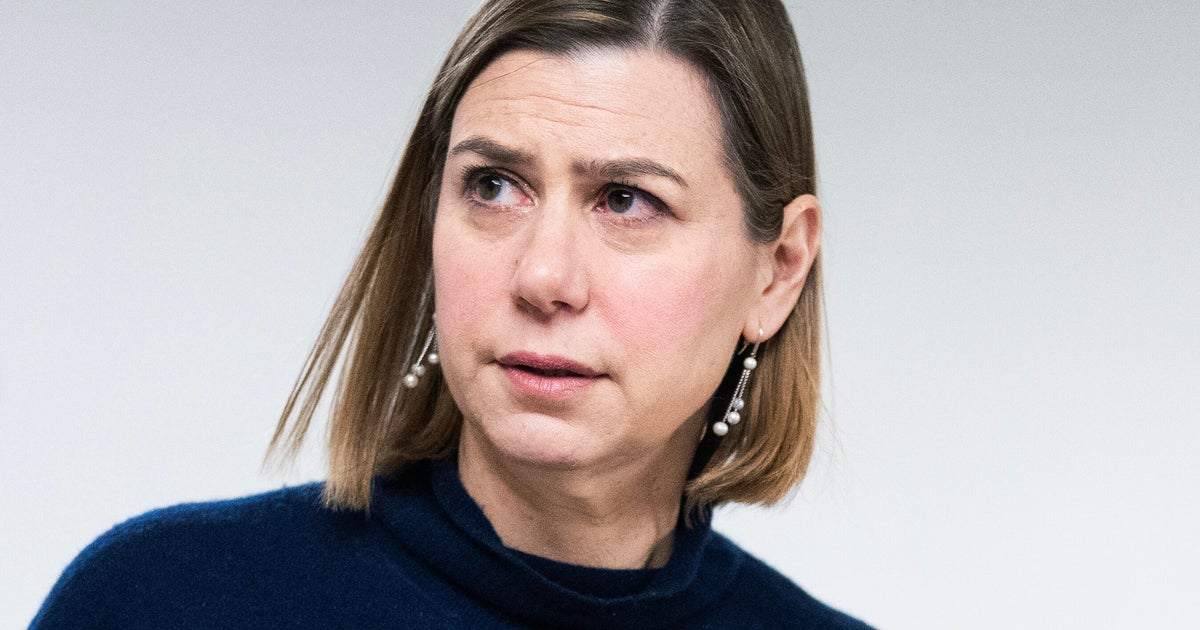Transcript: Sen. Cory Booker on "Face the Nation," July 21, 2019
The following is a transcript of the interview with Democratic Sen. Cory Booker of New Jersey that aired Sunday, July 21, 2019, on "Face the Nation."
MARGARET BRENNAN: We turn now to the 2020 presidential campaign, and New Jersey Senator Cory Booker, he joins us this morning from Los Angeles. Good morning to you.
SENATOR CORY BOOKER: Good morning, thank you for having me on.
MARGARET BRENNAN: Senator, you compared President Trump to George Wallace, the segregationist Democrat from Alabama. You said the president's own words were a disgusting display of racism and bigotry, are you accusing the president of being a racist?
SEN. BOOKER: I'm- I'm accusing him of being worse than that, he is somebody that is using race like a weapon to divide our country against itself. He's been using it since before he became president as a way to accelerate his gaining of political power. And the language he uses is actually language- tired old tropes that have been used by demagogues all throughout our country's history. From the know nothings who were fighting against Irish and German immigrants, literally using some of the same language, to some of the same tactics that George Wallace was using for his own political power, literally calling his opponents communist and the like. This president is yet another sad chapter, but what we have done all the time as Americans, black and white, from different backgrounds, we've always joined together and beaten those demagogues hate- hate mongers and fear mongers and I think that's where Donald Trump will be relegated. This- this election is not a referendum only on him, it's really a referendum on who we're going to be and who we're going to be to each other and I believe, have deep faith in this country's ability to come together and reject this type of politics, this isn't a partisan issue--
MARGARET BRENNAN: But to that point, to that point, do you think there is any merit to the argument that Democrats need to- to police their own ranks, that some of these progressive Democrats in the House have been reckless with some of their language?
SEN. BOOKER: I mean if you're talking about the politics within our party that- that's a lot different than someone who literally is calling for people, American citizens, to go home which is something that has been used as a racist trope. There's no equivalency here whatsoever. I don't care who says it. People who preach racism and bigotry for their own political power try to slice and divide this country against itself. That is something on a whole different moral plane than anything in the interdynamics of a political party. This is something that all of us and I- I hear this from my Republican friends. This is awful, we need to reject it, we need to move beyond this as a country.
MARGARET BRENNAN: But, the president has described this strategy though as- as forcing Democrats like yourself to essentially embrace people on the more liberal side of the party who have said things that he has characterized as anti-Israel sometimes anti-Semitic. Is this a strategy that is actually effective for the president because it's forcing Democrats like you to defend people you may or may not agree with?
SEN. BOOKER: Look, I will defend anybody Republican or Democrat who is attacked because of their color of their skin, because of their religion, because of their ethnicity. That's just who I am. I don't give a damn about the politics of it. Racism is racism. And to say nothing in- in the face of it is to be complicit in that kind of language. So I don't care about politics. I care about my nation. This is not who we are. We are a place that has always- I am literally sitting here as a United States senator because Republicans and Democrats stood up in the 1960s and fought for my family's housing rights and my equal rights. This is our- this is the greatness of our country it's not what he is evidencing right now. And we have a moral obligation.
MARGARET BRENNAN: But this--
SEN. BOOKER: Forget politics or political advantage to--
MARGARET BRENNAN: But the politics--
SEN. BOOKER: --to reject it.
MARGARET BRENNAN: --of race are also playing out in the Democratic debate stage. Certainly you and Senator Harris have been critical of Joe Biden, the front runner, for his past record when it comes to racial issues. So it- this also seems to be a fault line that can be useful politically for Democrats as well. Do you think that needs to change? Is that the strategy for this next debate? Are you going to get more aggressive on that front?
SEN. BOOKER: Look I'm running for president, not to use race as a strategy. I'm running for president 'cause we have more African-Americans, for example, under criminal supervision than all the slaves in 1850, that there were real racial realities that we have to deal with, not because of black or white, but because of America. We're a nation where we swear oaths to the ideals of "liberty and justice for all." And I know that this is a time where we talk about these things through a political lens but all of us in this country can- can agree that it's wrong that there is no difference between blacks and whites for using drugs or dealing drugs, but blacks are almost four times more likely to be arrested for that. And so yeah, it is fair. The 1994 crime bill, which put mass incarceration on steroids, and literally that I worked to pass a bill through a divided Congress called the 'First Step Act' to reverse things that were done in that 1994 crime bill. Yeah, I want people like Joe Biden, which he finally did, thank God, stand up and say, "I was wrong, that bill did a lot of harm." So to me this isn't politics, this is standing up and talking about our culture, who we're going to be, what's the soul of America. And- and right now, we are in a difficult period where you see violent racial attacks on a rise. Since 9/11, the majority of our terrorist attacks have been right wing extremists, a majority of those have been white supremacist attacks, and now we have a president that's language is usually- actually being used by white supremacists to justify their bigotry and hatred. So this- there's a lot of more moral issues going on and it's not a left-right divide. It- it's really, again, yet another chapter that we've seen from the Know Nothings to McCarthyism to- to George Wallace and- and Jim Crow. This is a moment in America, a moral moment, where we have to decide who we're going to be and are we going to confront the institutional racism and the racism being spewed from the most- one of the most sacred offices in all of our land: the presidency of the United States.
MARGARET BRENNAN: Senator Booker thank you for joining us, we'll be back in a moment.
SEN. BOOKER: Thank--



